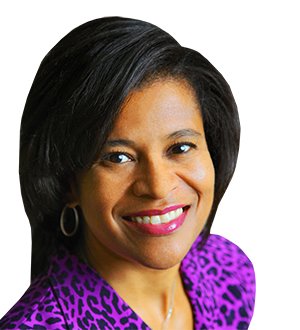Federal Court Grants Preliminary Injunction to Halt Enforcement of Florida's Stop WOKE Act
On August 18, 2022, the United States District Court for the Northern District of Florida entered a preliminary injunction ordering state officials in Florida to take no steps to enforce HB7, or the “Stop WOKE Act,” while the court considers the merits of the case.
In the case, two private employers and a diversity, equity, and inclusion (DEI) consultant and training company argued that HB7 is unconstitutional because it restricts free speech and is impermissibly vague. In a previous legal alert, we summarized HB7 and provided insights into what this law means for employers. In sum, HB7 prohibits Florida employers from requiring employees to attend any training or activity that “espouses, promotes, advances, inculcates, or compels” an individual to believe certain prohibited concepts relating to race, color, sex, or national origin.
What Does the Opinion Say?
In the colorful opinion authored by Chief U.S. District Judge Mark E. Walker, the court found that HB7 “unconstitutionally discriminates on the basis of viewpoint in violation of the First Amendment and is impermissibly vague in violation of the Fourteenth Amendment.” While this opinion only halts enforcement of HB7 pending a final decision on the merits of the complaint, the court made very clear that it believes HB7 is unconstitutional.
On First Amendment grounds, the court found that HB7 is a “naked viewpoint-based regulation” on employers’ free speech because it “targets only those viewpoints with which the State disagrees.” Viewpoint-based restrictions, the court noted, are “presumptively unconstitutional.” In the words of Chief Judge Walker, cases where viewpoint-based restrictions are constitutional “are few and far between,” and HB7 “is no unicorn.” In holding that the employers were substantially likely to succeed on the merits, the court stated, “If Florida truly believes we live in a post-racial society, then let it make its case. But it cannot win the argument by muzzling its opponents.”
On Fourteenth Amendment grounds, the court found that HB7 is impermissibly vague. The court noted that the prohibited concepts described in HB7 are “mired in obscurity” and “bordering on unintelligible.” To illustrate, the court considered the fourth topic, which states that employers cannot endorse the view that “[m]embers of one race, color, sex, or national origin cannot and should not attempt to treat others without respect to race, color, sex, or national origin.” The court noted this topic “features a rarely seen triple negative, resulting in a cacophony of confusion.” When employers cannot understand what exactly is prohibited, like here, the law is void for vagueness.
Because the plaintiffs showed they were substantially likely to succeed on the merits and met the other factors required for a preliminary injunction, the court halted enforcement of HB7. The court also ruled that “no exceptional circumstances” existed to warrant staying its injunction pending any appeal by the defendants.
What Does This Mean for Florida Employers?
The court’s opinion temporarily blocks the state of Florida from enforcing any alleged violation of HB7. For now, it would seem Florida employers can move forward with DEI trainings and conversations without fear that they may be alleged to have espoused or endorsed a prohibited concept by simply discussing or covering certain topics, but employers should carefully monitor the proceedings in this case. Representatives from Florida Governor DeSantis’s office have indicated that they intend to appeal the court’s preliminary injunction ruling, and the merits of the case are still pending before the Northern District of Florida.
Our Diversity Practice Group will continue to monitor developments in this area and will report them at https://www.fordharrison.com/DEI. If you have any questions about this Act, or would like for FordHarrison to review, provide input or deliver DEI training, please contact the authors, Dawn Siler-Nixon, Diversity & Inclusion partner in our Tampa office at dsiler-nixon@fordharrison.com, Louis D. Wilson, Managing Partner of our Melbourne office at ldwilson@fordharrison.com, and Emily Chase-Sosnoff, counsel in our Tampa office at echase-sosnoff@fordharrison.com. Of course, you can also contact the FordHarrison attorney with whom you usually work.

















